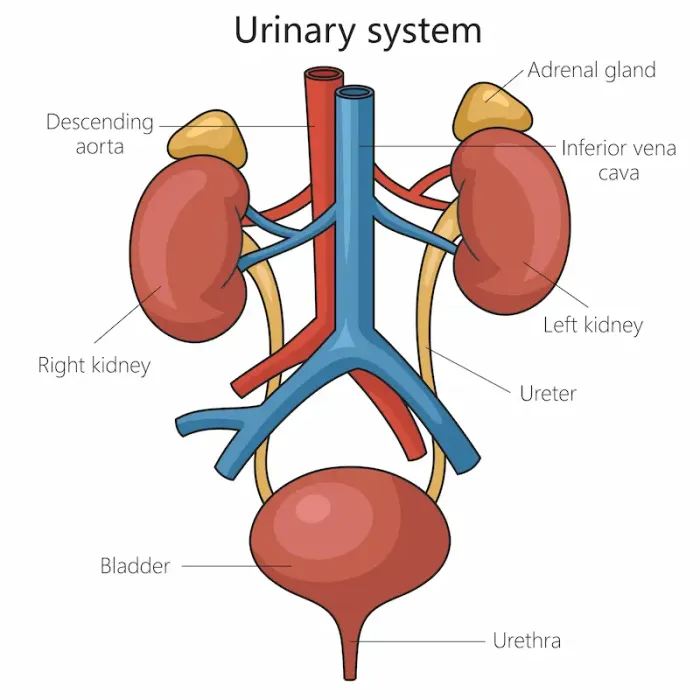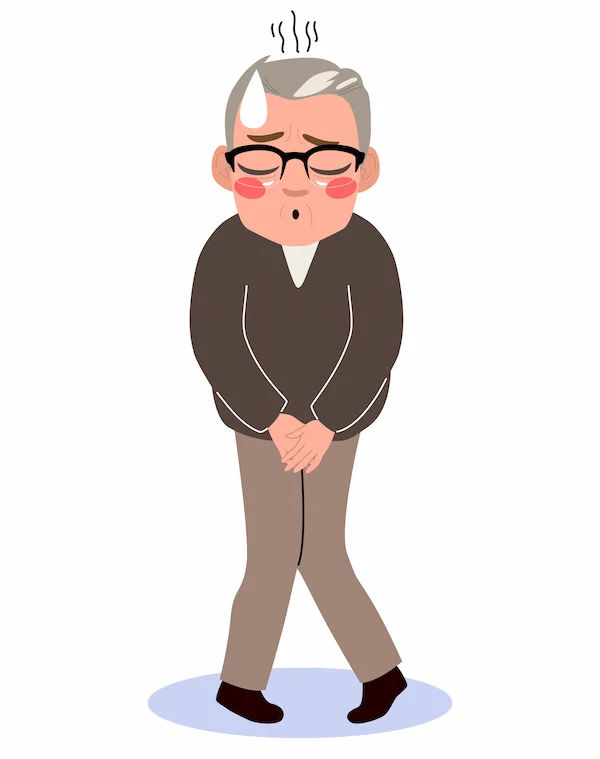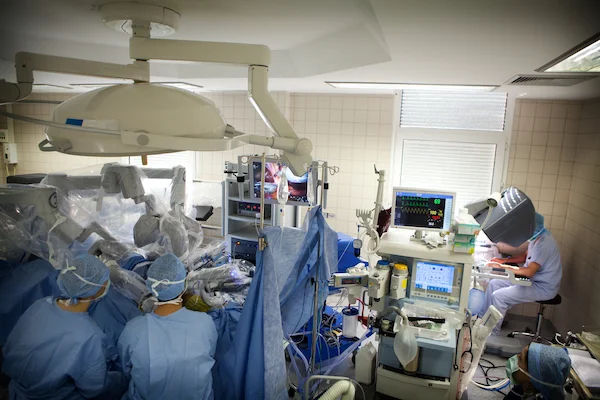Powerful Ways to Keep Your Urinary System Healthy
Discover nine effective strategies to maintain a healthy urinary system, from hydration and diet to pelvic floor exercises and lifestyle habits.


Introduction
Your urinary system is a silent workhorse, tirelessly filtering waste from your blood and maintaining your body's delicate balance of water and electrolytes. From your kidneys to your bladder, this intricate system is fundamental to your overall health and vitality. Yet, we often take it for granted until a problem like a urinary tract infection (UTI), kidney stones, or incontinence arises. The good news is that with conscious daily habits, you can significantly support and protect this vital system. This comprehensive guide will walk you through nine powerful, evidence-based strategies to keep your urinary system healthy and functioning optimally. We'll dive deep into everything from the hydration basics you think you know to the surprising lifestyle factors that have a major impact. By the end, you'll be equipped with a clear action plan for lifelong urinary wellness.
Understanding Your Urinary System: The Body's Filtration Plant
Before we explore how to care for your urinary system, it's helpful to understand what it does. Think of it as your body's sophisticated sanitation department.
The Key Players: Kidneys, Ureters, Bladder, and Urethra
The system consists of four main organs:
Kidneys: These two bean-shaped organs are the primary filters. They process about 200 quarts of blood daily to sift out about 2 quarts of waste products and extra water, which become urine.
Ureters: These thin tubes transport the urine from the kidneys down to the bladder.
Bladder: This hollow, muscular organ acts as a storage tank for urine. It expands as it fills and signals your brain when it's time to find a bathroom.
Urethra: This is the tube that carries urine from the bladder out of the body.
Why Urinary Health is Crucial for Overall Wellness
A healthy urinary system does more than just produce urine. It regulates blood pressure by controlling fluid volume, produces red blood cells by creating the hormone erythropoietin, and activates Vitamin D for strong bones. When this system is compromised, it can lead to a cascade of health issues far beyond discomfort.
Hydration: The Cornerstone of Urinary Health
Water is the lifeblood of your urinary system. It dilutes urine and ensures that you urinate frequently enough to flush bacteria and waste products out of your system before they can cause problems.
How Much Water is Enough? Debunking the 8-Glass Myth
The old "eight glasses a day" rule is a good starting point, but individual needs vary based on age, activity level, climate, and overall health. A more accurate guideline is to aim for enough fluid so that your urine is a light straw or pale yellow colour. Dark yellow urine is a classic sign of concentrated waste and a need for more hydration.
The Best and Worst Fluids for Your Bladder
While water is king, other fluids count too—but some are better than others.
Best: Plain water, herbal teas (like chamomile), and diluted fruit juices.
Proceed with Caution: Coffee, tea, alcohol, and sugary sodas are diuretics, meaning they can cause your body to lose more fluid and potentially irritate the bladder lining. They are fine in moderation but shouldn't be your primary source of hydration.
Dietary Choices for a Happy Bladder and Kidneys
What you eat directly influences the composition of your urine and the health of your urinary organs.
Power Foods: What to Eat for Optimal Function
Fibre-Rich Foods: A diet high in fruits, vegetables, and whole grains prevents constipation, which can put pressure on the bladder and prevent it from emptying fully.
Probiotics: Found in yoghurt, kefir, and fermented foods, these "good" bacteria support a healthy balance in the gut and urinary tract, potentially reducing the risk of UTIs.
Foods Rich in Antioxidants: Berries, bell peppers, and nuts help combat inflammation that can affect the bladder and kidneys.
Foods and Drinks to Limit or Avoid
High-Sodium Foods: Excess salt can increase blood pressure and put a strain on your kidneys. Processed foods are often the biggest culprits.
Bladder Irritants: For some people, spicy foods, artificial sweeteners, citrus fruits, and tomato-based products can irritate the bladder and worsen symptoms of urgency or frequency.
Smart Bathroom Habits You Should Adopt Today
How you use the bathroom is just as important as how often you go.
Listen to Your Body: Why You Shouldn't "Hold It In"
Holding your urine for prolonged periods stretches the bladder muscle and can make it weak over time. It also allows bacteria that may be present to multiply, increasing the risk of an infection. A good rule of thumb is to urinate every 3–4 hours.
The Right Way to Urinate and Empty Your Bladder Fully
For women, placing a small footstool in front of the toilet can help by positioning the body in a slight squat. This relaxes the pelvic floor muscles and can help the bladder empty more completely. Take your time and don't strain.Consult an Nephrologist for the best advice
Hygiene Practices to Prevent Infections (UTIs)
Proper hygiene is your first line of defence against bacteria that cause infections.
For Women: Wiping Front to Back and Other Essential Tips
Because a woman's urethra is shorter and closer to the anus, bacteria like E. coli can easily travel to the bladder. Always wipe from front to back after using the toilet. It's also wise to urinate shortly after sexual intercourse to flush out any bacteria that may have been introduced.
For Men: The Importance of General Cleanliness
While men have a lower risk of UTIs, good hygiene is still essential, especially for uncircumcised men who should gently retract and clean the foreskin regularly to prevent bacterial buildup.
The Role of Physical Activity and Healthy Weight
Staying active benefits every system in your body, including the urinary system.
Exercise: Boosting Circulation and Reducing Pressure
Regular exercise improves blood flow to the kidneys, supporting their filtration work. It also helps maintain a healthy weight, which is crucial for urinary health.
The Link Between Obesity and Urinary Incontinence
Excess weight, particularly abdominal fat, puts constant pressure on the bladder and pelvic floor muscles. This can lead to stress incontinence (leaking when you cough, sneeze, or exercise). Weight loss is often one of the most effective ways to reduce these symptoms.
Strengthening Your Pelvic Floor Muscles
These muscles form a hammock that supports the bladder, bowel, and (in women) the uterus. Weak pelvic floors are a primary cause of incontinence.
Not Just for Women: Why Men Need Kegels Too
While often associated with women after childbirth, men can also benefit from Kegels, especially after prostate surgery or to improve urinary control.
How to Correctly Perform Kegel Exercises
Identify the Muscles: Try to stop the flow of urine midstream. The muscles you clench are your pelvic floor muscles (do this only for identification, not as a regular exercise).
The Exercise: Tighten these muscles and hold for 3–5 seconds. Relax for the same amount of time. Repeat 10–15 times, 3 times a day. Consistency is key. If you are unsure about the correct technique, consulting a physiotherapist via Apollo24|7 can ensure you are doing them effectively and safely.
Lifestyle Factors: Smoking, Alcohol, and Stress
How Smoking Directly Harms Your Bladder
Tobacco smoke contains harmful chemicals that are filtered by the kidneys and concentrated in the urine. These can damage the lining of the bladder and are a leading cause of bladder cancer. Smoking also causes chronic coughing, which puts stress on the pelvic floor and can lead to incontinence.
Managing Stress for Better Bladder Control
High stress levels can manifest physically. For some, this means a hyperactive bladder or increased urgency. Practices like meditation, deep breathing, and yoga can calm the nervous system and, in turn, help regulate bladder function.
When to Seek Professional Help
While preventive care is powerful, some issues require medical expertise.
Recognising Red-Flag Symptoms
Do not ignore:
Pain or burning during urination.
Blood in the urine (haematuria).
Persistent, strong-smelling, or cloudy urine.
Pelvic pain or pressure.
A constant, urgent need to urinate.
Inability to control urination (incontinence).
The Importance of Regular Check-ups
If you experience any of the above symptoms persistently, it's important to consult a doctor. You can book an online consultation with a specialist on Apollo24|7 for a preliminary evaluation. For diagnostic purposes, they may recommend tests like a urinalysis, which Apollo24|7 offers through convenient home collection services, saving you a trip to the lab.
Conclusion
Your urinary system is a remarkable and resilient part of your body, but it thrives on conscious care. By integrating these strategies—prioritising hydration, making smart dietary choices, adopting healthy bathroom habits, and addressing lifestyle factors—you empower yourself to maintain optimal urinary health for years to come. Remember, these habits are not just about preventing problems; they are about promoting overall vitality and well-being. Start with one or two changes that feel manageable, and gradually build from there. Your body's filtration plant will thank you for the investment. If you ever have concerns or symptoms that persist, never hesitate to seek professional guidance to get the right diagnosis and treatment.Consult an Nephrologist for the best advice
Consult an Nephrologist for the best advice

Dr. Pardha Saradhi
Nephrologist
9 Years • MBBS, MD-DNB (Gen. Med.), DNB (Nephro)
Hyderabad
Apollo Hospitals D R D O kanchanbagh, Hyderabad
(75+ Patients)
Dr Gayatri Pegu
Nephrologist
15 Years • MD (General Medicine) DM(Nephrology)
Guwahati
Apollo Clinic Guwahati, Assam, Guwahati
Dr Ch Sashidhar
Nephrologist
20 Years • MBBS, MD General Medicine, DNB, Nephrology
Secunderabad
Apollo Hospitals Secunderabad, Secunderabad

Dr Praveen Kumar Etta
Nephrologist
10 Years • MBBS,MD DM(SGPGI) FORMER ASST(PIMS)
Hyderabad
Apollo Spectra Ameerpet, Hyderabad

Dr. Manju Kamal
Nephrologist
12 Years • MBBS,MD(General Medicine), DNB,DM(Nephrology)
Angamaly
Apollo Hospitals Karukutty, Angamaly
Consult an Nephrologist for the best advice

Dr. Pardha Saradhi
Nephrologist
9 Years • MBBS, MD-DNB (Gen. Med.), DNB (Nephro)
Hyderabad
Apollo Hospitals D R D O kanchanbagh, Hyderabad
(75+ Patients)
Dr Gayatri Pegu
Nephrologist
15 Years • MD (General Medicine) DM(Nephrology)
Guwahati
Apollo Clinic Guwahati, Assam, Guwahati
Dr Ch Sashidhar
Nephrologist
20 Years • MBBS, MD General Medicine, DNB, Nephrology
Secunderabad
Apollo Hospitals Secunderabad, Secunderabad

Dr Praveen Kumar Etta
Nephrologist
10 Years • MBBS,MD DM(SGPGI) FORMER ASST(PIMS)
Hyderabad
Apollo Spectra Ameerpet, Hyderabad

Dr. Manju Kamal
Nephrologist
12 Years • MBBS,MD(General Medicine), DNB,DM(Nephrology)
Angamaly
Apollo Hospitals Karukutty, Angamaly
More articles from Urology Consultation
Frequently Asked Questions
What is the fastest way to flush out your bladder?
The most effective way to flush your bladder is to increase your water intake. Drinking an extra glass or two of water will encourage more frequent urination, which helps to dilute and wash away bacteria or irritants.
Can dehydration cause urinary tract infections (UTIs)?
Yes, absolutely. When you're dehydrated, your urine becomes more concentrated, and you urinate less frequently. This gives bacteria a chance to multiply and adhere to the bladder lining, increasing the risk of a UTI.
Are cranberry juices and supplements good for preventing UTIs?
Cranberries contain compounds (proanthocyanidins) that may prevent bacteria from sticking to the bladder wall. However, many commercial cranberry juices are high in sugar, which can be counterproductive. A small amount of unsweetened juice or a supplement may be beneficial, but it should not replace drinking water or proper medical treatment for an active infection.
Why do I feel like I have to urinate all the time?
A constant urge to urinate (urinary frequency) can have several causes, including drinking too many diuretics (like coffee), a UTI, an overactive bladder, or even high stress levels. If this symptom persists, it's best to consult a doctor for an accurate diagnosis.
How can I tell if my kidney function is okay?
Early kidney disease often has no symptoms. The best way to check kidney function is through simple blood tests (like creatinine levels) and a urinalysis, which can detect protein in the urine. These are commonly included in routine health check-ups.



